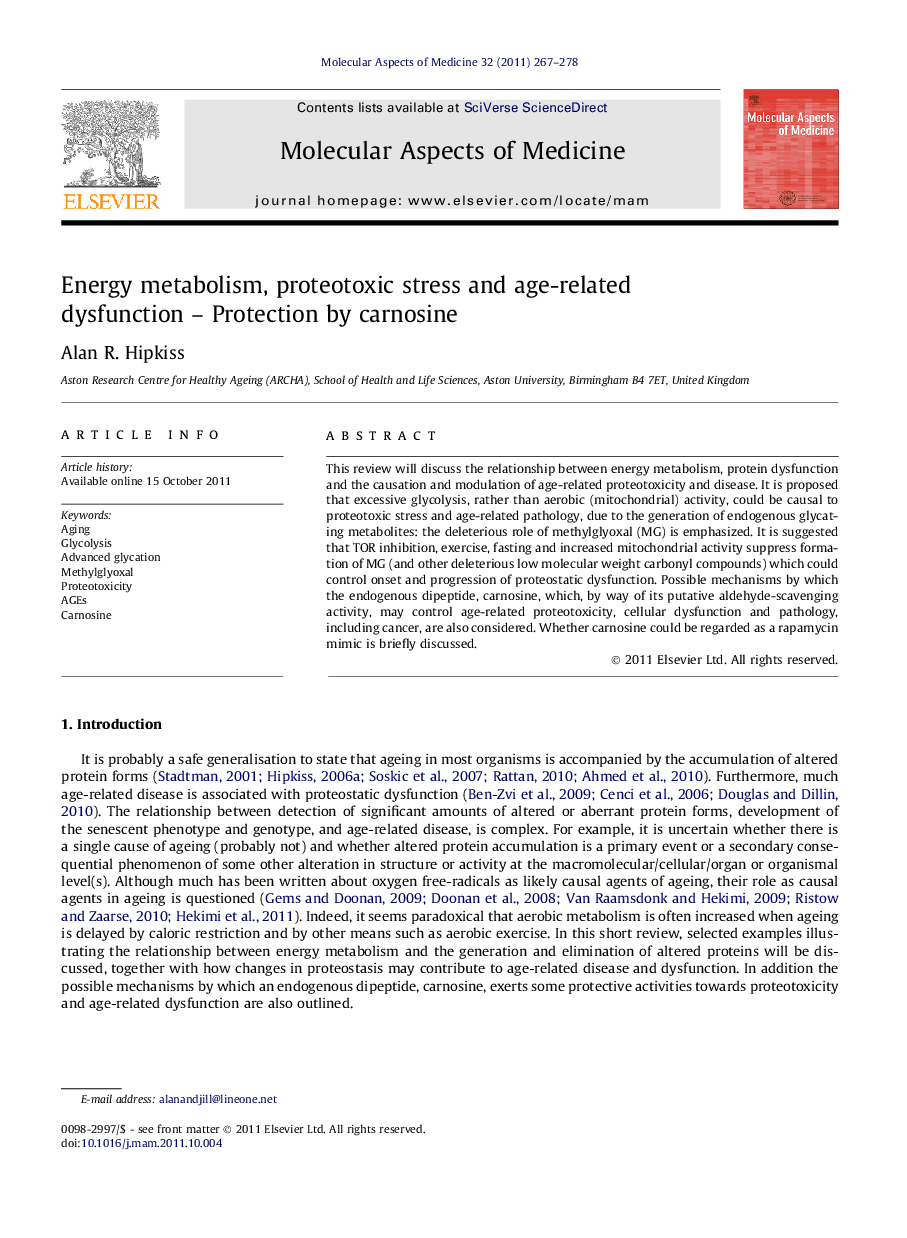| Article ID | Journal | Published Year | Pages | File Type |
|---|---|---|---|---|
| 8341626 | Molecular Aspects of Medicine | 2011 | 12 Pages |
Abstract
This review will discuss the relationship between energy metabolism, protein dysfunction and the causation and modulation of age-related proteotoxicity and disease. It is proposed that excessive glycolysis, rather than aerobic (mitochondrial) activity, could be causal to proteotoxic stress and age-related pathology, due to the generation of endogenous glycating metabolites: the deleterious role of methylglyoxal (MG) is emphasized. It is suggested that TOR inhibition, exercise, fasting and increased mitochondrial activity suppress formation of MG (and other deleterious low molecular weight carbonyl compounds) which could control onset and progression of proteostatic dysfunction. Possible mechanisms by which the endogenous dipeptide, carnosine, which, by way of its putative aldehyde-scavenging activity, may control age-related proteotoxicity, cellular dysfunction and pathology, including cancer, are also considered. Whether carnosine could be regarded as a rapamycin mimic is briefly discussed.
Related Topics
Life Sciences
Biochemistry, Genetics and Molecular Biology
Biochemistry
Authors
Alan R. Hipkiss,
